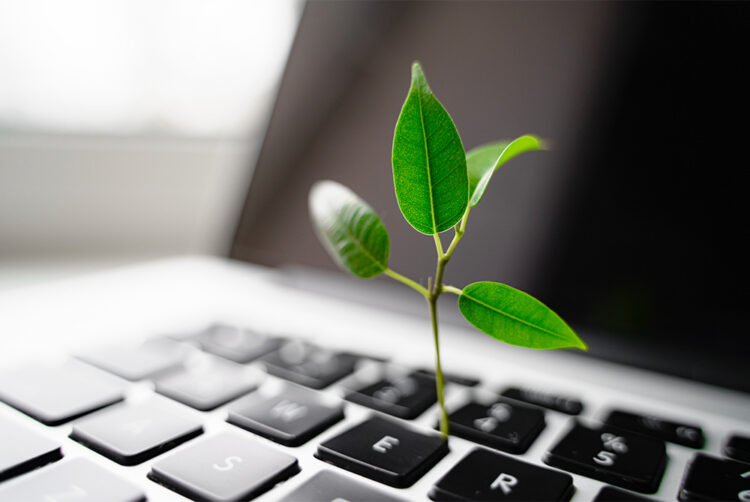Sustainability is a focus, now what? Three things you can start today

Opinion
If profit is measured, sustainability should be, too.
I had the opportunity to listen to industry leaders debate issues of focus for 2023 at The Future of Media event in October. The topics ranged from the cost of living crisis and talent retention to sustainability. As you can appreciate, the leaders hotly debated because, given the range, how do you prioritise? Sustainability, at one point, moved to the bottom of the league table but, in the end, made it to one of the three areas of focus for 2023.
While listening to some of the comments from leaders in the room, both in the debate and during offline conversations, it was apparent to me there is more support required to address the foundations of how to effectively embed sustainability as an internal programme that is impactful for the company, people and the planet.
Some of the comments I heard from leaders in the room were:
“We already have too much on the to-do list; how are we supposed to add this.”
“This is important; it’s all important; where do we even start”
“It’s a big area we need to deliver for our clients and guide them on all of this and we need to be guided ourselves,”
“ I can’t believe sustainability was taken off the list”
There are companies across the maturity model with an understanding of the issues, allocation of teams and budgets. Several brands, companies and agencies are already approaching sustainability in unique ways that align with their values and business requirements. For example, Puma hosted its first Conference of the People, which brought together intergenerational thought leadership panels to discuss everything from trainer designs to circular economy.
Another example is Precision, a full-service marketing, technology, media and eCommerce business based in Suffolk, England, that is carbon-neutral. One of the USPs of Precision is they minimise the impact of their clients’ direct mail campaigns and product delivery through responsible sourcing, which includes solar-powered print and mail production.
Across the industry, there are several case studies of the impactful work that is delivering for the company, people and planet. However, to ensure a collective impact in 2023, planning has to start now, especially for agencies, companies or brands at the beginning of the journey. If you are at the beginning or need to reset, three things you can do to embed sustainability as a focus for 2023 effectively: conduct a materiality assessment; identify and engage with all of your stakeholders; and don’t market, measure.
Conduct a materiality assessment
A materiality assessment will give you the critical information you need to determine what is vital for your company, the strategy you will need to follow and how to structure the initiative for success.
It’s in the name; what is material for your company? It is essential to list the issues that are a priority and their impact and not fall into the catchphrase trap. For example, there is a focus on net zero and carbon neutrality, rightfully.
However, that may be different from what is material for your company. Water consumption, electricity or sustainable supply chains might be a more pressing and impactful focus for you. Some of the questions you should be asking during the assessment are:
- What is important to the company?
- What is important to stakeholders?
- Is there a gap between what is important to the company and stakeholders?
- What priorities require the most investment?
- What are our quick wins?
Once you complete your materiality assessment, you will be equipped with the information you need to prioritise, have a clear vision, design a strategy and plan to deliver.
Identify and engage with all of your stakeholders
One of the areas where programmes fail is stakeholder management. The lack of stakeholder management is sometimes because there is a very narrow focus on who stakeholders are. With sustainability, while all stakeholders are not equal, a broad group of people have skin in the game. You must identify and engage with all of them properly.
For example, by default, customers, clients, and shareholders will be a primary focus. However, employees need as much attention as any other group because not only do they need to ‘buy what is being sold,’ they should be advocates. There are stories across the internet of employees calling out their employers for greenwashing and the like, so along with only doing what you are committing to, effectively engage your employees.
In addition, a broader set of stakeholders must be reviewed. For example, you may need to consider government officials, residents (depending on where your company is based), partners, or activist groups, focused on the issues you prioritise. Building relationships and ensuring the right people are informed and, in some cases, aligned will be invaluable to your success.
Don’t market, measure
A lot of ‘sustainability programmes’ are well-designed marketing campaigns. There is a lot of talk; however, when looking closely, there is no impact, no action or worse: hypocrisy.
Impact is determined through measuring. Having key performance indicators isn’t an optional extra. Based on the results of the materiality assessment, everyone must have a clear understanding of how the identified priorities will be measured. There has been a debate about key performance indicators’ role in sustainability programmes. I don’t know how they don’t — they must have a role.
If profit is measured, sustainability should be, too. Data-driven design ensures validity and credibility.
If you are at the start of your journey, do not go public until the end of the second year. This allows you time to demonstrate your progress and, more importantly, your impact to the public at large.
Incorporating sustainability is just how business will be done. Clients, customers and shareholders increasingly demand more information from companies they do business with, purchase from or invest in. From 2024, Scope 3 Emissions will be introduced, so now is the best time to get the foundations right.
 Sabrina Clarke is Managing Partner of Build Global, a boutique strategy consultancy. She specialises in consultancy around strategy, transformation and sustainability.
Sabrina Clarke is Managing Partner of Build Global, a boutique strategy consultancy. She specialises in consultancy around strategy, transformation and sustainability.



